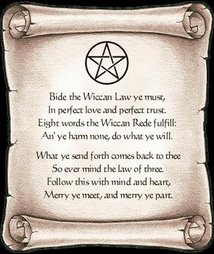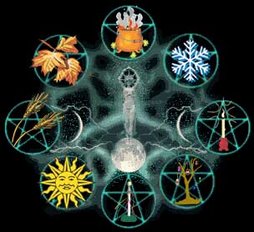Saturday, April 19, 2008
Monday, April 14, 2008
Thursday, April 10, 2008
The History On Earth Day

From The Kaboose Webpage
Below is a brief account of the history of Earth Day, written for children. Kids can read this story out in front of the class or for family on the holiday. After learning about the history of Earth Day, for more activities and fun including coloring pages, crafts and recipes.
In the Beginning...
In 1963, former Senator Gaylord Nelson began to worry about our planet. (A senator is a person that the people of the United States have chosen to help make the laws.) Senator Nelson knew that our world was getting dirty and that many of our plants and animals were dying.
He wondered why more people weren't trying to solve these problems. He talked to other lawmakers and to the President. They decided that the President would go around the country and tell people about these concerns. He did, but still not enough people were working on the problem.
The Idea
Then, in 1969, Senator Nelson had another idea. He decided to have a special day to teach everyone about the things that needed changing in our environment. He wrote letters to all of the colleges and put a special article in Scholastic Magazine to tell them about the special day he had planned. (Most of the schools got this magazine and he knew that kids would help him.)
The Holiday
On April 22, 1970, the first Earth Day was held. People all over the country made promises to help the environment. Everyone got involved and since then, Earth Day has spread all over the planet. People all over the world know that there are problems we need to work on and this is our special day to look at the planet and see what needs changing. Isn't it great?
One person had an idea and kept working until everyone began working together to solve it. See what happens when people care about our world?
A new look at junk, or change the world, one bit a a time...
1. Things to discuss when it comes to saving resources...
Recycling is when an object can be shredded, melted or otherwise processed and then turned into new raw material -- for instance, aluminum cans can be melted down to make more cans, glass can make more glass, cardboard and paper make more cardboard and paper, plastic bags and containers can be turned into other plastic products. This takes some energy (very little for aluminum), but it is a good choice.
Reusing is when you find a use for an existing item - like decorating a bag and using it as a gift bag instead of buying wrapping paper; putting leftovers into a clean container from some other food; turning a used box into storage; decorating a can to hold pencils; saving packing peanuts and boxes and using them the next time you need to ship something or give a gift.
It is important to 'reuse' items wisely -- reusing packing peanuts to pack an item is by far the best way to use them. Recycling them, if it is available, would be the next best thing. Turning them into an art project would be the least effective, and eventually they will end up in the landfill. Now many of us love art projects, and would be using materials to make crafts anyway, and so using an item that would otherwise be discarded may still be a sensible choice, it depends on the project. Our Earth Day Messenger Card and Laundry Bottle Pet Food Scoop crafts are great ways of making art out of would-be "junk." For more great ideas on recycled crafts, check out our Earth Day Crafts section.
Giving things in good condition that you no longer need to charity is another good way to reuse things like outgrown clothing or toys. Reusing is often the best way to save resources. This is something to consider year-round, not just around the winter holidays.
Shop Wisely to save resources. Can the container be easily recycled or reused? Will a larger container reduce the amount of packaging and perhaps cost less per serving? Is everything that can be recycled being recycled?
Save resources (and money) by asking yourself if the item is something you really need, and if it is well suited for the task, and if it will last. Not only can this save you money, it can save you space and work, too. Five toys that are loved an played with are more fun than 10 toys that are broken or are boring to play with. And it's quicker to pick up 5 toys and put them away than to pick up 10. Sometimes my kids and I imagine what it would be like if we bought everything we 'liked'..... and we realize that there wouldn't be any room left for us in the house.... and that really doesn't sound like that much fun, even to my kids.And, when you're out shopping in the stores, bring your own reusable bag instead of taking a plastic bag you'll eventually just throw away.
Plant a Tree
Sally Sullivan writes:
I teach a 4 year old preschool class and one of the ways we celebrated Earth Day last year was to purchase trees through the National Arbor Day Foundation to be planted in honor of each child in our class. The trees last year were to be planted in the John Denver Memorial Grove in Aspen. It was only a $1 donation per tree.
We printed up a letter/document for each child telling them about the tree that was purchased on their behalf and how it would help our earth.
Plant-It 2020 is also a nonprofit tree-planting foundation. For every dollar contributed to this foundation a tree will be planted, and the contributor selects where the tree(s) will be planted from an international site list. (click here to visit the Plant-It 2020 site)
Clean Up and Beautify
Organize a project to clean up or beautify some area in your town. It could be at your school, or some other spot. Make sure to have a plan for how to take care of the spot after you've made it nice.
You can read about what some kids did in this International Center for Tropical Ecology Newsletter - scroll down and look for 'Windstar Kids at Broadview Elementary'
Sunday, February 24, 2008
Position Statement on Religious Discrimination in Prisons
Remarks by Wiccan Chaplain Patrick McCollum
Position Statement on Religious Discrimination in Prisons
I would like to thank the Commission on behalf of the Wiccan community and on behalf of minority faiths in general, for offering us the opportunity to contribute to the dialogue on religious discrimination in United States’ prisons. I will focus primarily on the accommodation of Wicca and the discrimination Wiccans face in State and federal prisons, but I would like the commission to recognize that one can easily insert the name of any other minority faith in place of Wicca, and still have the exact same end result. That is, these problems are endemic for all minority faiths that are not in the family of religions of Abraham.
I’d like to start with a few true examples of discrimination to illustrate the severity of the problem:
A Wiccan inmate has cancer and the prison guards refuse to transport him to his chemotherapy treatments unless he removes his religious pentacle medallion which they have objections to. He chooses to forgo his chemotherapy and keep his pentacle.
A Wiccan inmate has been trying to go to Wiccan services for months, but the guard at her dorm refuses to give her a pass. The guard says it is for the good of the Wiccan inmate's soul.
Another dying Wiccan writes his volunteer chaplain that he needs to see him before he crosses over. The chaplain makes numerous attempts to reach prison staff to receive the necessary clearances, but no one responds. But worse, prison mailroom staff refuse to forward the chaplain's mail, so that the inmate knows why his chaplain isn't coming.
Over more than a decade, I’ve had the opportunity to interact nationally with both administrators and inmates on religious accommodation issues. While practices differ from state to state, I found discrimination against minority faiths everywhere. The reason for this is what I call the Dominant Religion Lens Factor.
The Dominant Religion Lens Factor is a process whereby administrators and security staff view all faith practices from the perspective of the Dominant faiths only, leaving no consideration that there are different ways to practice religion. The Dominant Religion Lens Factor is exacerbated by the fact that almost all of the administrators, who oversee religion programs in prisons, are members, and often clergy, of the very same Dominant faiths from which they take their cues, and even worse, many of them believe that their particular faith should dominate the landscape. Consequently, these people make determinations of what faith practices are or are not acceptable, based on the premise that if it looks like the Dominant faith’s practices, then the practices are probably okay and should be accommodated, but if the practices do not look like the dominant faith’s practices, then both the practices and the faith itself are suspect, and accommodation should be restricted. This particular way of viewing religion, replicates the very same kind of oppressive view that our forefathers and foremothers left Europe to escape, and if there is to be any hope of achieving equal religious rights for prisoners, then this whole way of viewing religion by those in charge, needs to be changed.
Here’s how this works:
I arrived one morning at a prison to conduct Wiccan religious services. I put the inmates to work moving the chairs in the chapel into a circle, which is the typical configuration utilized for Wiccan religious services. Almost immediately security stopped us, saying that we could not conduct our services sitting in a circle, citing security. They instructed me that as the chaplain, I had to stand up front at the pulpit and that the inmates had to sit in the pews and that I had to conduct "sermons" from there. I tried to explain that Wiccan clergy do not give sermons and that creating a circle is the Wiccan way of creating “Sacred Space”, but they would have none of it. They forced me to conduct my services from the pulpit, completely negating all of the necessary steps to actually conduct a legitimate Wiccan religious service.
What was particularly odd about this scenario is the fact that staff and chaplains, regularly stand, sit, and closely interact, with inmates all of the time, and that’s not seen to be a security issue, but conducting religious services in what to them appeared to be a non-traditional way, seemed in their mind to pose a problem. Eventually I was able hold appropriate services, but to this day, staff still make comments about the inappropriateness of this type of a service, and for that reason, among others, ridicule Wicca as not being a real religion.
So, let’s take a look at where the Dominant Religion Lens Factor ultimately leads:
I had a Wiccan inmate whose wife died. He was called in by a staff chaplain and given the news. In the course of the conversation, the inmate was told that perhaps his had wife died because of his participation in the Wiccan services, and that if he repented and started attending "real" religious services, there was a chance he could still be saved.
These kinds of interactions are common for minority faiths in prison. And while administrators may not be aware that they are operating in this prejudicial way, the end result for Wiccans is still the same - discrimination.
And then there’s the worst case scenario, which actually occurs often, where certain prison administrators, staff, and chaplains fully believe that they have a mission to discourage minority faiths from practicing at all. In this context, the Dominant Religion Lens Factor empowers them and encourages them to act on their biases, which ultimately leads to the kind of behavior in the case cited.
Another problem I’ve observed is the great difficulty that Wiccans face when trying to gain access to their sacred religious items. In this instance, the number one reason cited for denying them is security, when in fact there isn’t a security issue at all.
Wiccans typically use an altar adorned with various religious items. These items are usually composed of a chalice, a few candles, incense, and typically a few natural objects like, a feather, a small crystal, or a flower. A small statue or depiction of deity might also be included, and sometimes a Wiccan religious book. These items are highly sacred to Wiccans and play a critical role in their ability to conduct their religious services. Even so, Wiccans are regularly denied these items nationwide.
Now, here’s the kicker:
In every case I’ve investigated, every single institution that denied these sacred items to Wiccans, allowed the very same items to be used in services conducted by the dominant faiths. For example Catholics use a chalice during communion, and Muslims and the Catholics use incense. Protestants & Catholics use candles, and both also have sacred art present. Depictions of Jesus and Mary in prison chapels are commonplace, as are other symbols of Christian faith and deity. I’ve also attended many services where flowers are present, and all of these faiths use a holy book. So why is it that these dominant faiths get all of this without a problem, and yet Wiccans and other minority faiths don’t? It’s because the administrators and security staff see the dominant faith’s use of these items as normal, and the minority faith’s use of these exact same items as weird or dangerous, because the services in which minority faiths utilize these items look different to them than those that they are used to.
Another area in which the Dominant Religion Lens Factor plays out involves accommodations that involve significant resources. A good example is the allocation of regularly employed chaplains.
This is a problem throughout the country. California is an example. Even though there are more Wiccans attending religious services at the institutions in question than there are of some of the dominant faith groups who already have regularly employed chaplains, the State has told the Wiccans that they have to prove that their religious tenets require a chaplain before the institution will consider hiring one. So, far the inmates haven’t been able to prove that, although they’ve been trying for nearly five years. But the odd thing about this proof requirement is that the Protestant inmates, who do have regularly employed chaplains, were never required to prove their need for a chaplain at all. And even more telling is the fact that Protestant religious tenets specifically state that clergy is not necessary to practice the Protestant faith, and in fact, the whole Protestant reformation was based on that principle. So, to clarify this situation, if the same standards that are being required of the Wiccans were to be applied to the Protestants, then all the Protestant chaplains would have to be fired.
This is the same issue for other resource allocations, such as space, budget, books, special religious programming and the like. Protestant congregations in most prisons have bible classes, revivals, videos, and choirs; and I even recently attended an event where Bikers for Christ, brought in a dozen full dressed Harleys for the inmates at a several institutions to interact with. All of these accommodations are provided to the Protestants even though none of these things are required by their tenets. Yet the Wiccans are permitted only those things that they can prove are required by their faith tenets. This sets up a very unfair situation, where resource allocation is not accomplished by an equitable formula.
In addition, those who review inmate grievances, including even some courts, also tend to look at the issues through the Dominant Religion Lens, as well, making it difficult for even the most egregious of these problems to be addressed.
The issues I’ve discussed involve clear and obvious violations of the Constitution of the United States, RLUIPA, and RFRA, as they directly violate the civil rights of the Wiccans involved, yet no one questions them. Why is that? Could it be that our government has established religious favorites?
Here are my recommendations to this commission:
If we want to achieve religious equality in prisons, then we have to restrict the hiring of administrators, staff, and chaplains into gatekeeper positions for our nations’ correctional religious programs. Only individuals who do not see it as their duty to promote certain religious practices over others should be hired in such positions. This should be a Bona Fide Occupational Qualification. We must also educate those who do act as gatekeepers, about pluralism and the guiding principles of religious accommodation in general, so that all inmates will be permitted a reasonable and equitable opportunity to practice their faiths. And we need to establish a separate grievance process for religious issues, which gives inmates a direct line to action in these areas and protection from retaliation. This new grievance process should include experts in non-traditional faiths, so that the Dominant Religion Lens Process is avoided. And lastly, we also need to get rid of administrators and chaplains who believe that breaking the law by violating inmates’ religious rights is justified by faith.
Thank you.
Rev. Patrick McCollum
Position Statement on Religious Discrimination in Prisons
I would like to thank the Commission on behalf of the Wiccan community and on behalf of minority faiths in general, for offering us the opportunity to contribute to the dialogue on religious discrimination in United States’ prisons. I will focus primarily on the accommodation of Wicca and the discrimination Wiccans face in State and federal prisons, but I would like the commission to recognize that one can easily insert the name of any other minority faith in place of Wicca, and still have the exact same end result. That is, these problems are endemic for all minority faiths that are not in the family of religions of Abraham.
I’d like to start with a few true examples of discrimination to illustrate the severity of the problem:
A Wiccan inmate has cancer and the prison guards refuse to transport him to his chemotherapy treatments unless he removes his religious pentacle medallion which they have objections to. He chooses to forgo his chemotherapy and keep his pentacle.
A Wiccan inmate has been trying to go to Wiccan services for months, but the guard at her dorm refuses to give her a pass. The guard says it is for the good of the Wiccan inmate's soul.
Another dying Wiccan writes his volunteer chaplain that he needs to see him before he crosses over. The chaplain makes numerous attempts to reach prison staff to receive the necessary clearances, but no one responds. But worse, prison mailroom staff refuse to forward the chaplain's mail, so that the inmate knows why his chaplain isn't coming.
Over more than a decade, I’ve had the opportunity to interact nationally with both administrators and inmates on religious accommodation issues. While practices differ from state to state, I found discrimination against minority faiths everywhere. The reason for this is what I call the Dominant Religion Lens Factor.
The Dominant Religion Lens Factor is a process whereby administrators and security staff view all faith practices from the perspective of the Dominant faiths only, leaving no consideration that there are different ways to practice religion. The Dominant Religion Lens Factor is exacerbated by the fact that almost all of the administrators, who oversee religion programs in prisons, are members, and often clergy, of the very same Dominant faiths from which they take their cues, and even worse, many of them believe that their particular faith should dominate the landscape. Consequently, these people make determinations of what faith practices are or are not acceptable, based on the premise that if it looks like the Dominant faith’s practices, then the practices are probably okay and should be accommodated, but if the practices do not look like the dominant faith’s practices, then both the practices and the faith itself are suspect, and accommodation should be restricted. This particular way of viewing religion, replicates the very same kind of oppressive view that our forefathers and foremothers left Europe to escape, and if there is to be any hope of achieving equal religious rights for prisoners, then this whole way of viewing religion by those in charge, needs to be changed.
Here’s how this works:
I arrived one morning at a prison to conduct Wiccan religious services. I put the inmates to work moving the chairs in the chapel into a circle, which is the typical configuration utilized for Wiccan religious services. Almost immediately security stopped us, saying that we could not conduct our services sitting in a circle, citing security. They instructed me that as the chaplain, I had to stand up front at the pulpit and that the inmates had to sit in the pews and that I had to conduct "sermons" from there. I tried to explain that Wiccan clergy do not give sermons and that creating a circle is the Wiccan way of creating “Sacred Space”, but they would have none of it. They forced me to conduct my services from the pulpit, completely negating all of the necessary steps to actually conduct a legitimate Wiccan religious service.
What was particularly odd about this scenario is the fact that staff and chaplains, regularly stand, sit, and closely interact, with inmates all of the time, and that’s not seen to be a security issue, but conducting religious services in what to them appeared to be a non-traditional way, seemed in their mind to pose a problem. Eventually I was able hold appropriate services, but to this day, staff still make comments about the inappropriateness of this type of a service, and for that reason, among others, ridicule Wicca as not being a real religion.
So, let’s take a look at where the Dominant Religion Lens Factor ultimately leads:
I had a Wiccan inmate whose wife died. He was called in by a staff chaplain and given the news. In the course of the conversation, the inmate was told that perhaps his had wife died because of his participation in the Wiccan services, and that if he repented and started attending "real" religious services, there was a chance he could still be saved.
These kinds of interactions are common for minority faiths in prison. And while administrators may not be aware that they are operating in this prejudicial way, the end result for Wiccans is still the same - discrimination.
And then there’s the worst case scenario, which actually occurs often, where certain prison administrators, staff, and chaplains fully believe that they have a mission to discourage minority faiths from practicing at all. In this context, the Dominant Religion Lens Factor empowers them and encourages them to act on their biases, which ultimately leads to the kind of behavior in the case cited.
Another problem I’ve observed is the great difficulty that Wiccans face when trying to gain access to their sacred religious items. In this instance, the number one reason cited for denying them is security, when in fact there isn’t a security issue at all.
Wiccans typically use an altar adorned with various religious items. These items are usually composed of a chalice, a few candles, incense, and typically a few natural objects like, a feather, a small crystal, or a flower. A small statue or depiction of deity might also be included, and sometimes a Wiccan religious book. These items are highly sacred to Wiccans and play a critical role in their ability to conduct their religious services. Even so, Wiccans are regularly denied these items nationwide.
Now, here’s the kicker:
In every case I’ve investigated, every single institution that denied these sacred items to Wiccans, allowed the very same items to be used in services conducted by the dominant faiths. For example Catholics use a chalice during communion, and Muslims and the Catholics use incense. Protestants & Catholics use candles, and both also have sacred art present. Depictions of Jesus and Mary in prison chapels are commonplace, as are other symbols of Christian faith and deity. I’ve also attended many services where flowers are present, and all of these faiths use a holy book. So why is it that these dominant faiths get all of this without a problem, and yet Wiccans and other minority faiths don’t? It’s because the administrators and security staff see the dominant faith’s use of these items as normal, and the minority faith’s use of these exact same items as weird or dangerous, because the services in which minority faiths utilize these items look different to them than those that they are used to.
Another area in which the Dominant Religion Lens Factor plays out involves accommodations that involve significant resources. A good example is the allocation of regularly employed chaplains.
This is a problem throughout the country. California is an example. Even though there are more Wiccans attending religious services at the institutions in question than there are of some of the dominant faith groups who already have regularly employed chaplains, the State has told the Wiccans that they have to prove that their religious tenets require a chaplain before the institution will consider hiring one. So, far the inmates haven’t been able to prove that, although they’ve been trying for nearly five years. But the odd thing about this proof requirement is that the Protestant inmates, who do have regularly employed chaplains, were never required to prove their need for a chaplain at all. And even more telling is the fact that Protestant religious tenets specifically state that clergy is not necessary to practice the Protestant faith, and in fact, the whole Protestant reformation was based on that principle. So, to clarify this situation, if the same standards that are being required of the Wiccans were to be applied to the Protestants, then all the Protestant chaplains would have to be fired.
This is the same issue for other resource allocations, such as space, budget, books, special religious programming and the like. Protestant congregations in most prisons have bible classes, revivals, videos, and choirs; and I even recently attended an event where Bikers for Christ, brought in a dozen full dressed Harleys for the inmates at a several institutions to interact with. All of these accommodations are provided to the Protestants even though none of these things are required by their tenets. Yet the Wiccans are permitted only those things that they can prove are required by their faith tenets. This sets up a very unfair situation, where resource allocation is not accomplished by an equitable formula.
In addition, those who review inmate grievances, including even some courts, also tend to look at the issues through the Dominant Religion Lens, as well, making it difficult for even the most egregious of these problems to be addressed.
The issues I’ve discussed involve clear and obvious violations of the Constitution of the United States, RLUIPA, and RFRA, as they directly violate the civil rights of the Wiccans involved, yet no one questions them. Why is that? Could it be that our government has established religious favorites?
Here are my recommendations to this commission:
If we want to achieve religious equality in prisons, then we have to restrict the hiring of administrators, staff, and chaplains into gatekeeper positions for our nations’ correctional religious programs. Only individuals who do not see it as their duty to promote certain religious practices over others should be hired in such positions. This should be a Bona Fide Occupational Qualification. We must also educate those who do act as gatekeepers, about pluralism and the guiding principles of religious accommodation in general, so that all inmates will be permitted a reasonable and equitable opportunity to practice their faiths. And we need to establish a separate grievance process for religious issues, which gives inmates a direct line to action in these areas and protection from retaliation. This new grievance process should include experts in non-traditional faiths, so that the Dominant Religion Lens Process is avoided. And lastly, we also need to get rid of administrators and chaplains who believe that breaking the law by violating inmates’ religious rights is justified by faith.
Thank you.
Rev. Patrick McCollum
Subscribe to:
Comments (Atom)













